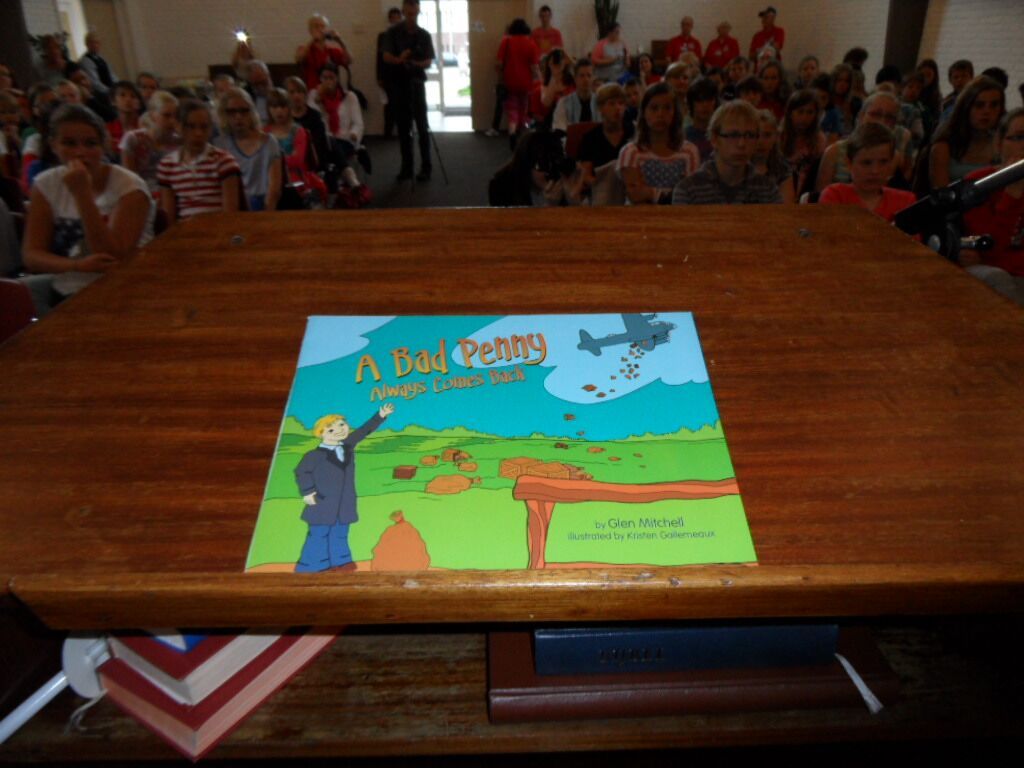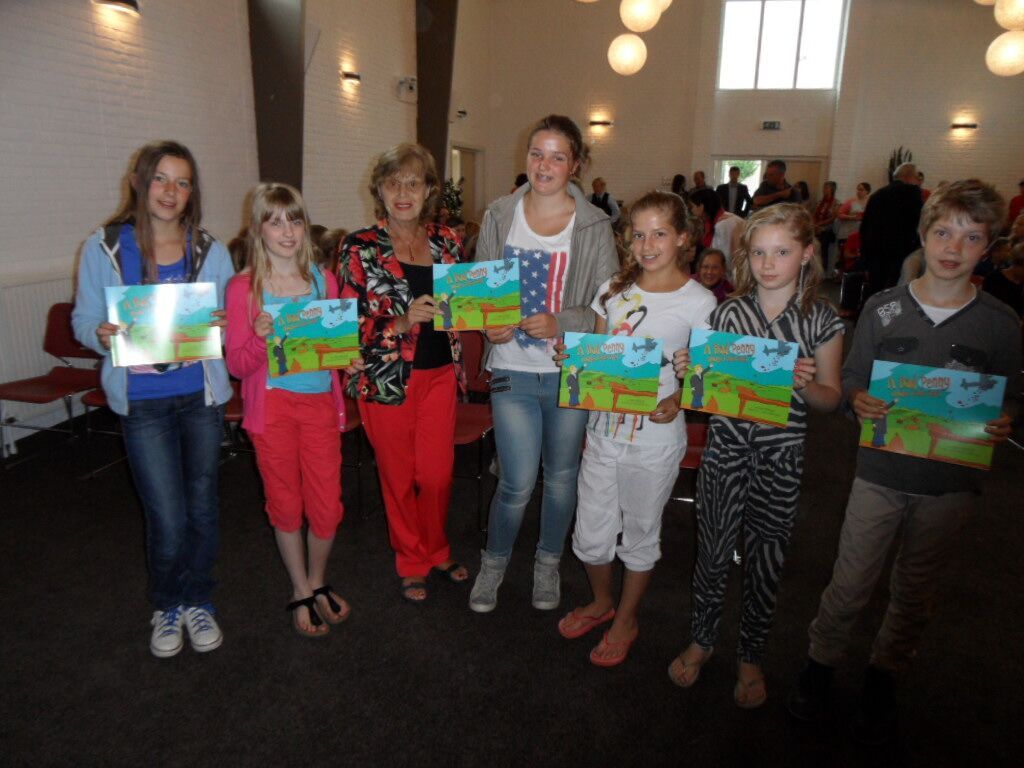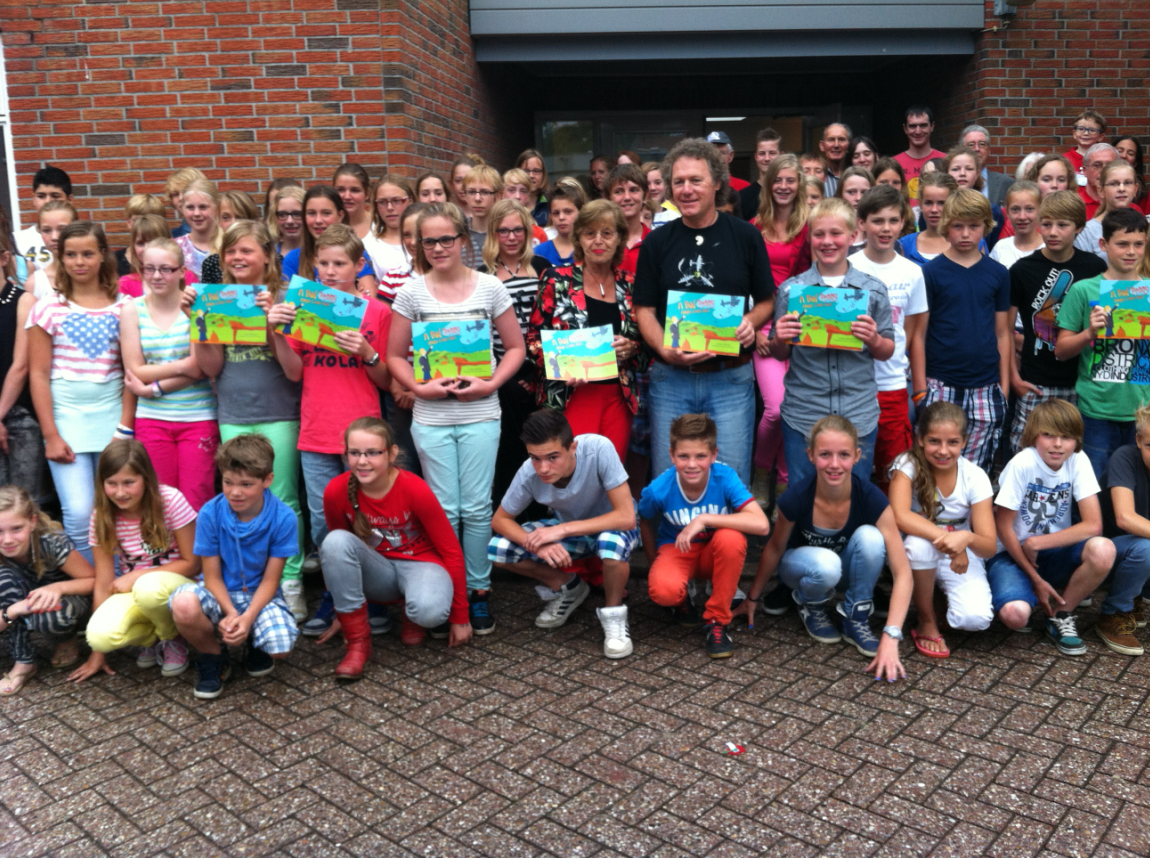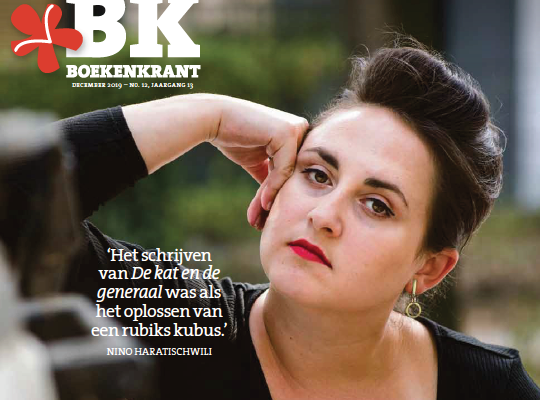Glenn Mitchell’s children’s book A Bad Penny Always Comes Back tells the remarkable story of Operation Manna. In April 1945, Royal Air Force planes set off for Holland to provide food droppings. Food was scarce in the area, so the bread that, quite literally, fell from the skies, helped many people to survive the war. On June 21st 2013, the book was presented to the primary schools of the Dutch town of Markelo.
Dit artikel is ook beschikbaar in het Nederlands. Klik hier. De Boekenkrant redactie was aanwezig bij het evenement dat centraal staat in dit artikel. Aangezien er mensen uit verschillende landen aanwezig waren is er voor gekozen om het artikel in het Engels te vertalen.
The presentation of Mitchell’s book took place during a special commemoration day. In 1943, three Allied planes suffered a German attack and crashed near Markelo. The seventeen men who lost their lives were buried in the local graveyard. Seventy years later, the Fallen Airmen Markelo Foundation reached out to the airmen’s British, New-Zealand and Australian families. Countless family members from all over the world came to the little Dutch town to honour the airmen.
As part of the the event, the sixth graders of local primary schools gathered during an exclusive assembly to meet the airmen’s family members. In addition, Benny Schreurs, head of the memorial foundation, talked to the kids about the importance of remembering the war. “You are important, because you are the ambassadors of the future”, he explained.
Ada Wynston and six primary school students
Books like A Bad Penny Always Comes Back teach children about the history of the Second World War – so each primary school received a few copies. ‘Bad Penny’ was the name of the first aeroplane that flew over Holland, uncertain of how the Germans would respond. To learn more about the book, go to www.badpennybook.com
The books were handed out to the sixth graders by another special guest: Ada Wynston. As a little Jewish girl, Wynston was able to avoid the concentration camps because of Walter Süskind. Süskind, a Jew himself, was assigned by the Germans to register Jewish people before they were transported to the camps. In secret, he saved hundrerds of children by getting them to the safer country side.
[quote]Books like A Bad Penny Always Comes Back teach children about the history of the Second World War[/quote]
After the war, Wynston was reunited with her dad, brother and sister. Her mother and the rest of her entire family were killed in the camps. “My brother, sister, father and I were able to survive the war because of the help of others”, Wynston told the primary school students. “Many people opened up their homes for us to go in hiding.” Wynston also mentions a 21-year-old boy who helped her out many times. He transported her from one hiding place to the next on his bike, risking his own life in the process. “People like him saved my life. And I want to give something back.”
Currently, Wynston resides in Canada. There, she visits schools to tell students about her life during the war. Using her own experiences, she encourages kids to put a stop to bullying and racism. “You need to get up and do something. Go to your church or your teacher – make it stop.” Later that day, Markelo’s primary school students joined the airmen’s families, army officials and locals at the graveyard for a memorial service.
All the sixth graders, Ada Wynston and the airmen’s family members
During this commemoration day, Markelo’s sixth graders learnt about three very different types of war heroes: the pilots in A Bad Penny Always Comes Back, the people of the resistence who saved people like Ada Wynston, and the fallen airmen of Markelo. All these heroes risked their lives to help others. What they did will undoubtedly inspire the ‘ambassadors of the future’ to build a beautiful tomorrow.
The memorial event in Markelo introduced A Bad Penny Always Comes Back to the Netherlands. The aim is to make the book available for all Dutch primary schools by 2015.
Photos by Henk Hondelink & Anouk Abels







